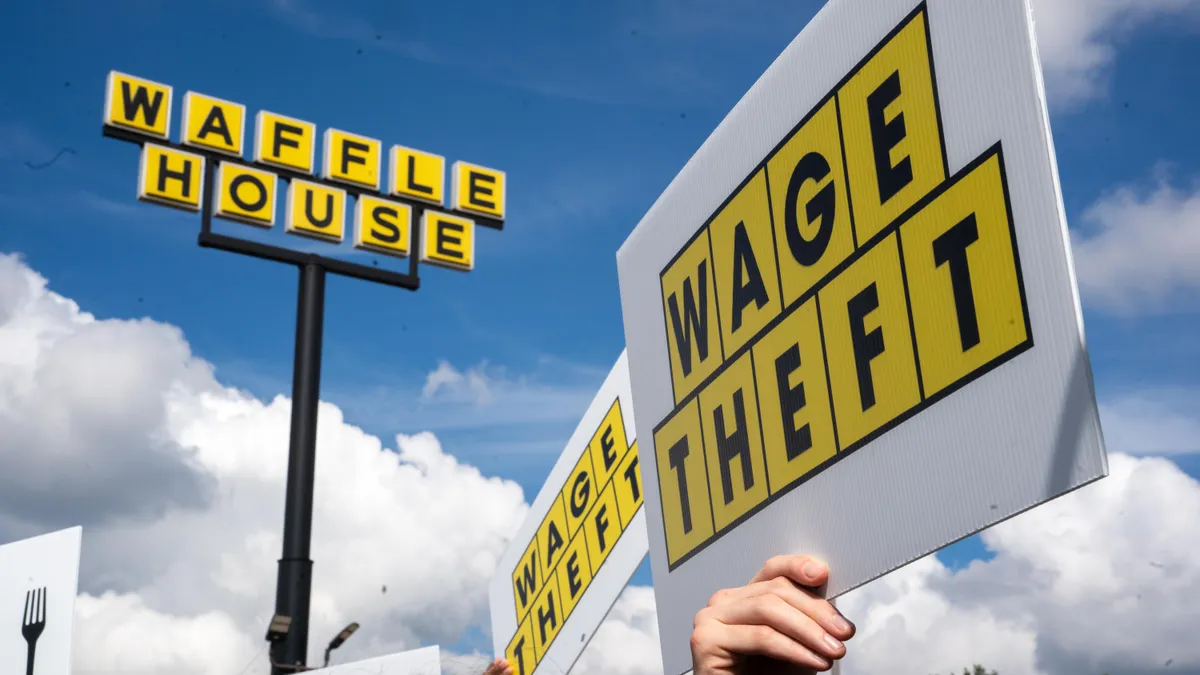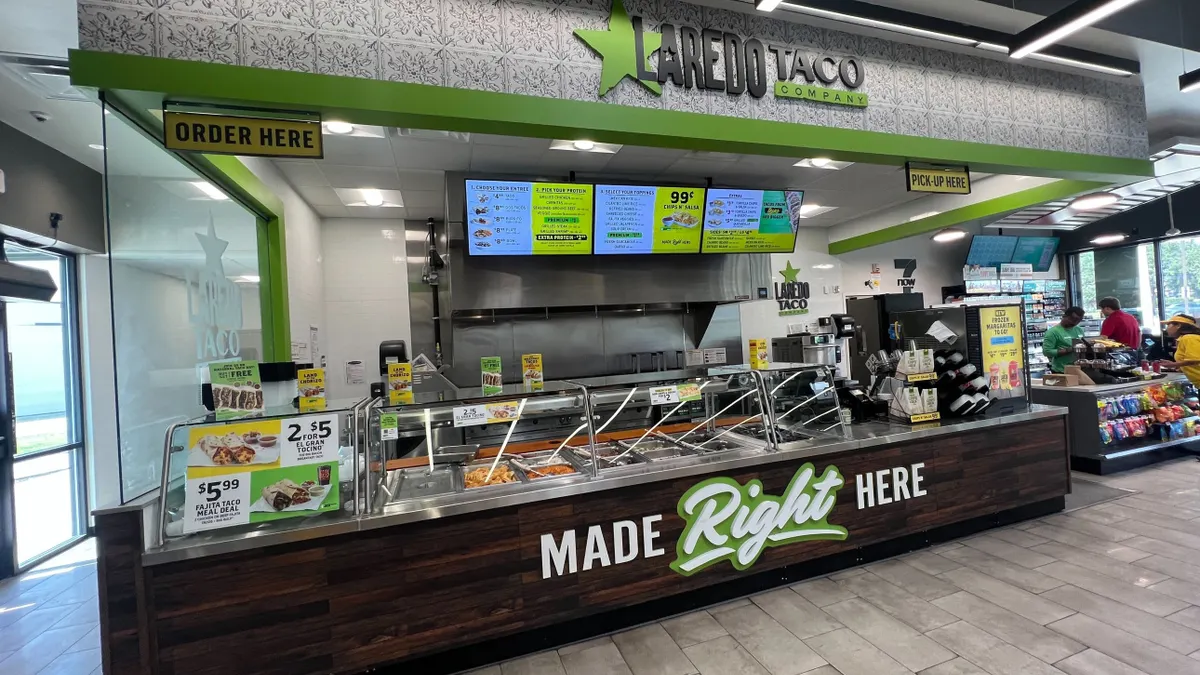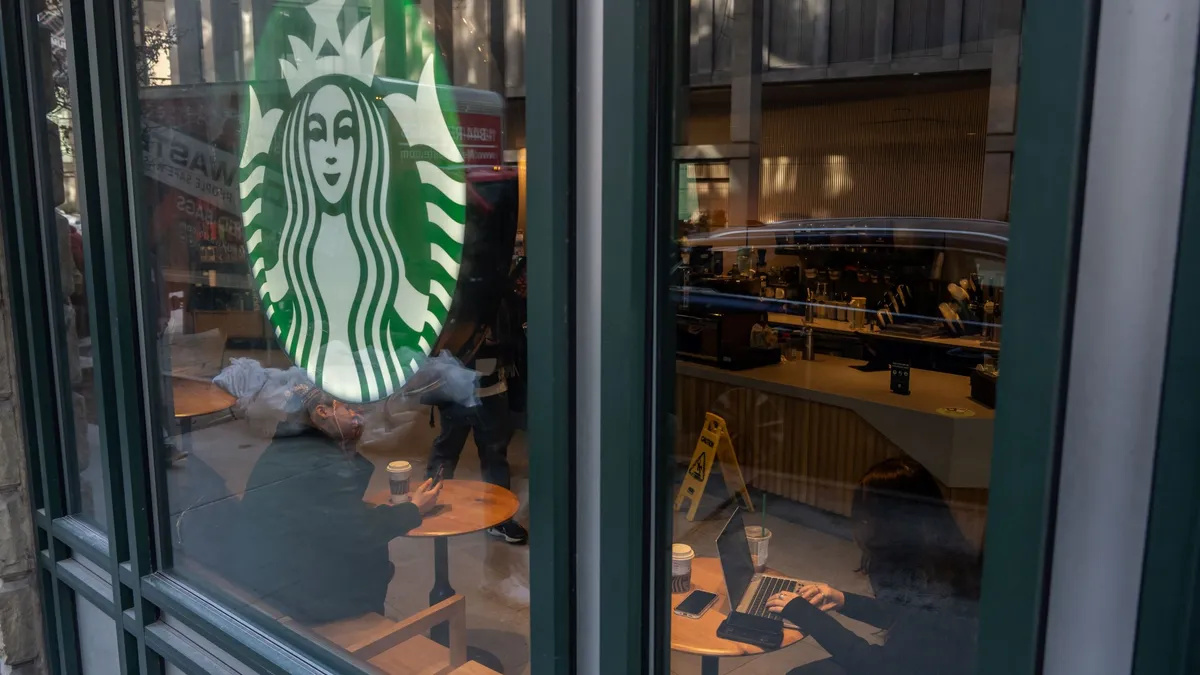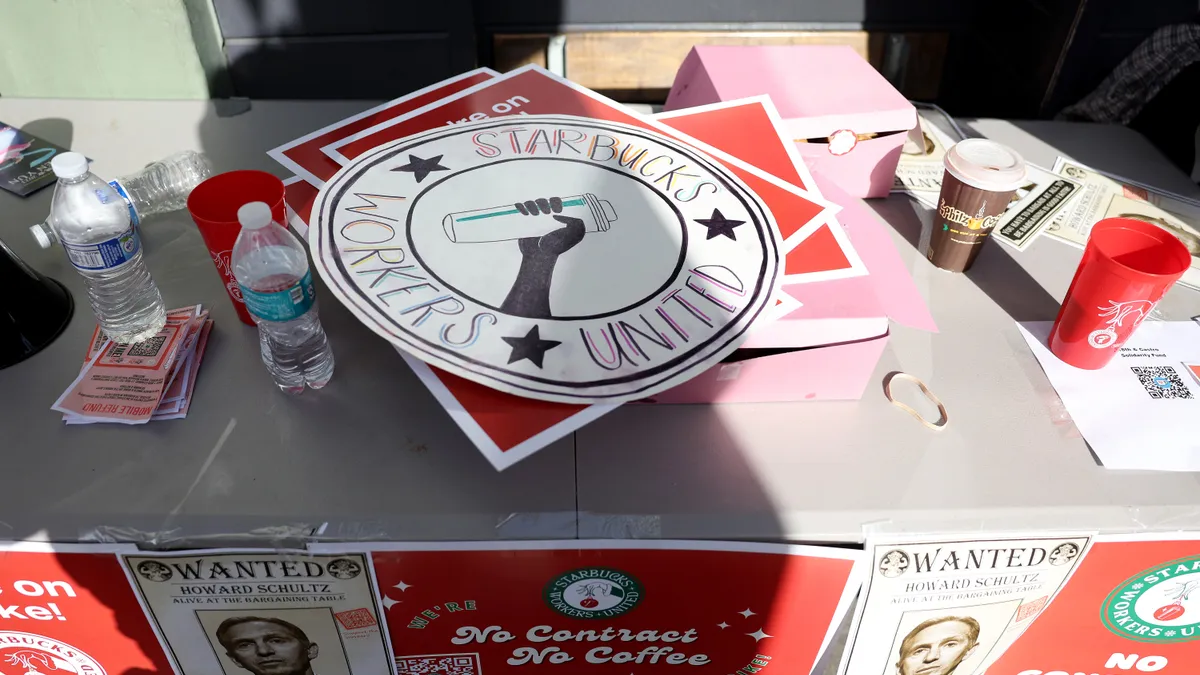The Union of Southern Service Workers alleges Waffle House consistently underpaid workers by illegally claiming a tip credit on ineligible work. The union filed a wage and hours complaint with the U.S. Department of Labor on Thursday, and requested the DOL remove Waffle House’s ability to take a tip credit.
The USSW, an affiliate of Service Employees International Union, based the complaint on interviews with more than 20 workers, and alleged the company engaged in other forms of wage theft.
The Strategic Organizing Center, a labor federation including SEIU, released a survey of more than 400 Waffle House employees that, according to a press release, found 90% of surveyed workers experienced one form of wage theft in the last year. Waffle House did not respond to a request for comment on USSW’s allegations.
Cindy Smith, who has worked at Waffle House for 30 years as a server, said she was required to perform significant amounts of dishwashing and janitorial work for which Waffle House claimed a tip credit. USSW claims in its complaint that janitorial and dishwashing duties are a different, non-tipped occupation, rather than tip-supporting tasks included in the job duties of serving.
The DOL’s interpretation of the Fair Labor Standards Act says that for workers who perform duties across multiple occupations an “employer may only take a tip credit for the work performed by the tipped employee that is part of the employee’s tipped occupation.”
The Fifth Circuit Court of Appeals recently scrapped one of the DOL’s tests for determining when employers can claim a tip credit on work that does not directly produce tips.
The USSW’s complaint, however, cites the Fifth Circuit’s opinion as holding that dual job regulations remain intact, meaning that employers should pay workers the full minimum wage for work in unrelated occupations. The union says that janitorial work, dishwashing and cooking, when performed by servers, are tasks outside of their tipped occupations, rather than tip-supported work, and that the company cannot claim a tip credit for that work.
“Waffle House managers across restaurants do not track servers’ time spent performing non-tipped jobs, but instead profit off servers who are paid a tipped wage to perform jobs that are not tipped occupations,” the union claims.
The USSW and SOC allege Waffle House engages in other forms of wage theft, like making workers work off the clock. When one employee “tried to clock out at the actual time she finished working,” the complaint alleges, “her manager would change the hours on her paystubs to reflect only her scheduled hours.”
Smith claimed the company withheld her paychecks for extended periods between 2022 and 2024, leaving her to survive solely on tips.
“For a 14-month period, I only got five paychecks. I was working 40-plus hours every week,” Smith said. The company told her that it was withholding her checks because her health insurance premiums were in arrears — Smith said they were not in arrears. As a result, Smith struggled to pay bills and to buy enough food for herself and her son.
“It was either my son would eat or we would both try to eat something small,” Smith said. “So I'd rather my son eat. I’d go to bed hungry many times.”
That experience pushed Smith to join the USSW, and in March of this year she went on strike for a workweek with the union. She said her support for the union and its complaint to the Department of Labor was not motivated by money, but a desire for transparency and change at Waffle House.
“I don't care if I don't get that money back,” Smith said. “I want them to open their books. I want the government to be able to see exactly how many people [Waffle House] have stuck it to and took money from.”
In June, Waffle House announced it would raise wages at some of its stores in the near future, but Smith said her store wouldn’t see a pay increase for years.
The USSW’s campaign has focused on three core demands: a $25 hourly wage, 24/7 security at stores and an end to mandatory meal deductions.
Smith said safety was particularly important to Waffle House workers, citing an incident earlier this week in which an 18-year-old employee was shot and killed at a North Carolina Waffle House. Smith said she’d faced violence on the job herself, once in 2011 when she was robbed at gunpoint, while her then 6-year-old son was in the restaurant, and several years later when a customer snatched a cash register drawer from her.
“The only thing I could think is if I couldn't move fast enough, he was gonna kill me, and my son was gonna have to sit there and watch his mama die,” Smith said.
Even after her store was robbed, Smith said she had to work the rest of her shift. A security presence at the restaurant would make her and other workers feel safer, she said. Ultimately, the multi-pronged campaign aims to transform the company’s relationship to its workers, she said.
Forms of wage theft, like requiring workers to work through breaks or to work before clocking in and after clocking out, are fairly common in restaurants. One report on wage theft by the National Employment Law Project estimated that employers stole up to $15 billion from workers every year across industries. In restaurants specifically, SEIU’s research on fast food indicates a majority of workers may experience wage theft.
In several recent cases, restaurant employers have faced steep fines over wage theft. La Tolteca Authentic Mexican Restaurant in Wilkes-Barre, Pennsylvania, was recently ordered to pay $1.3 million in back wages and damages. Earlier this year, Swahili Village in D.C. reached a $525,000 settlement for violating the district’s wage and hour laws. In California, The Cheesecake Factory and two janitorial contractors were required to pay $1 million in damages to janitors.




















